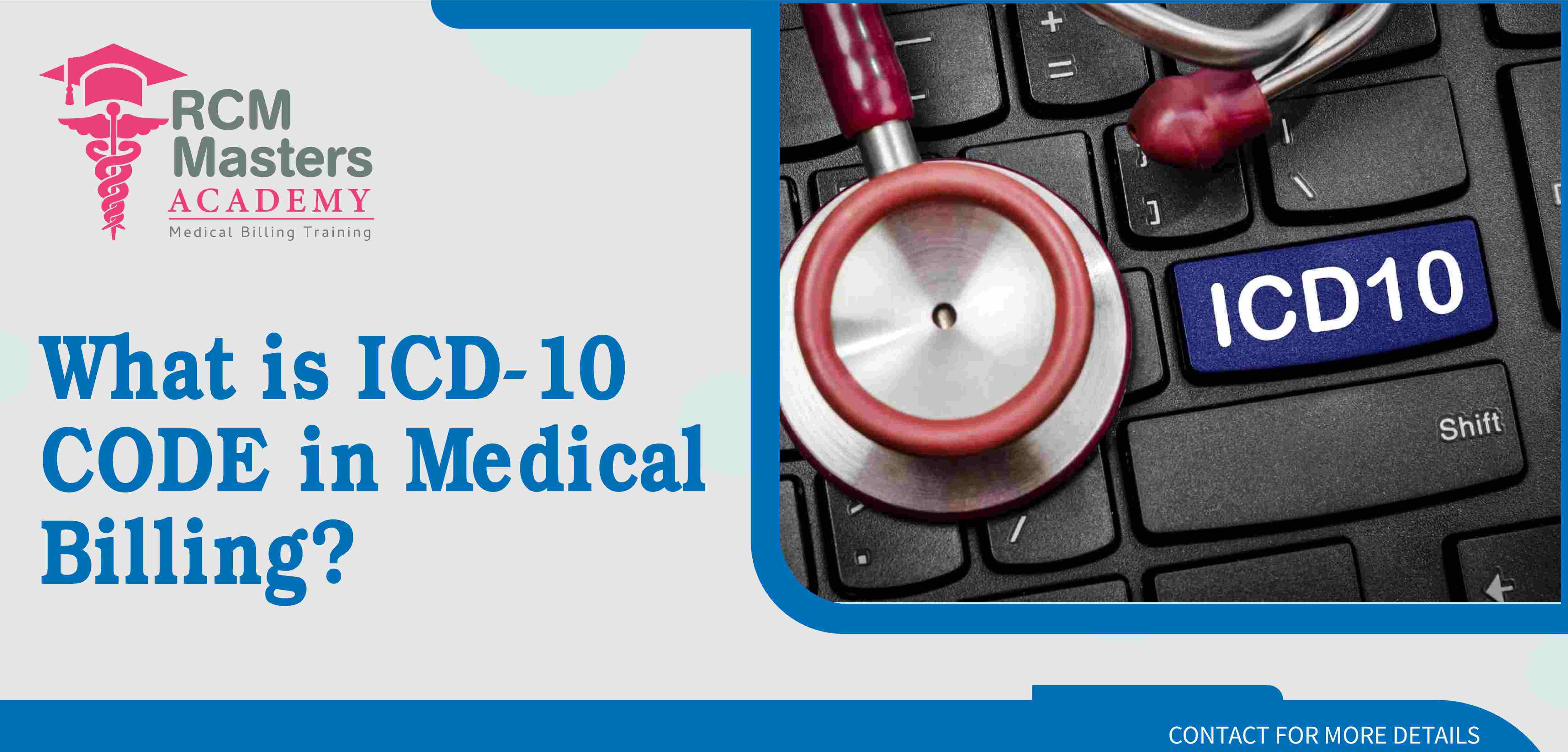 info@rcmmastersacademy.com
info@rcmmastersacademy.com

ICD-10 codes, or International Classification of Diseases, Tenth Revision codes, are a system of alphanumeric codes used in medical billing to classify and code diseases, injuries, and other health conditions. The ICD-10 coding system was first introduced by the World Health Organization (WHO) in 1990 and was adopted by the United States in 2015, replacing the previous ICD-9 system.
ICD-10 codes are essential to the medical billing process because they are used to describe and categorize medical diagnoses, procedures, and treatments. These codes are necessary for insurance companies to accurately process claims and determine reimbursement amounts for medical services provided by healthcare providers. In other words, without ICD-10 codes, medical billing would be impossible.
ICD-10 codes consist of three to seven characters and are divided into three categories:
1. Category 1: These codes represent diseases and other health conditions. They are arranged in chapters according to body system or condition, such as infectious and parasitic diseases, neoplasms, or injury and poisoning.
2. Category 2: These codes are used to track healthcare services and procedures. They are divided into 21 sections, such as anesthesia, radiology, or laboratory procedures.
3. Category 3: These codes are used for new and emerging technologies, procedures, and services. They are temporary codes that are updated every year.
ICD-10 codes are used by healthcare providers, medical coders, and billers. Providers are responsible for diagnosing patients and documenting their medical conditions in the patient’s medical record. Coders and billers then use this information to assign the appropriate ICD-10 codes to each diagnosis and procedure. The codes are then used to create a medical claim that is submitted to the patient’s insurance company for reimbursement.
ICD-10 codes are incredibly detailed and specific, with over 68,000 codes in the system. For example, there are codes for specific types of fractures, such as a displaced fracture of the left tibia, or for specific viral infections, such as COVID-19. The specificity of these codes allows insurance companies to accurately process claims and ensure that healthcare providers are reimbursed for the services they provide.
In addition to their use in medical billing, ICD-10 codes are also used for research and public health purposes. The codes allow healthcare providers and researchers to track and analyze disease patterns and trends, which can help identify emerging health threats and inform public health policies and programs.
Overall, ICD-10 codes are an essential component of the healthcare system. They allow for accurate and efficient medical billing, provide detailed information for research and public health purposes, and ensure that patients receive the care they need. Without ICD-10 codes, the healthcare system would be unable to function properly.
You can enroll for our Online Medical Billing Training here: